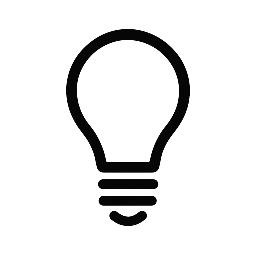In a world where voices are being systematically silenced, a stark warning has emerged from the Global Civil Society Alliance (GCSA). Their recent report highlights a troubling global trend of authoritarian regimes cracking down on opposition, leading to an increase in corruption and inequality. This silencing of dissent is not just a violation of human rights; it is a danger to the very fabric of society.
The Erosion of Democratic Values
The GCSA report outlines how silencing dissent erodes the foundation of democratic values. Authoritarian regimes around the globe have been intensifying efforts to suppress opposition, often through harsh measures such as censorship, imprisonment, and even extrajudicial actions. These tactics aim to create an environment of fear, where citizens are afraid to speak out against government actions.
This erosion of democratic values undermines trust in institutions. When people cannot express their grievances freely, they lose faith in the ability of their government to address their concerns. This mistrust breeds apathy and disengagement, leading to a decline in civic participation and weakening the pillars of democracy.
The Link between Silenced Dissent and Corruption
One of the most concerning findings of the GCSA report is the direct link between silenced dissent and rampant corruption. In environments where opposition voices are stifled, there is less scrutiny over governmental actions. Transparency is sacrificed, allowing corrupt practices to flourish unchecked.
Without the watchful eye of a free press or an active civil society, public officials can engage in embezzlement, bribery, and other forms of corruption with impunity. This not only diverts resources away from essential public services but also deepens social injustices and widens the gap between the rich and the poor.
Inequality: A Consequence of Suppressed Dissent
Suppressed dissent also exacerbates inequality. When opposition is silenced, marginalized communities bear the brunt of neglect and discrimination. Their needs and voices are systematically ignored, leading to policies that favor the elite at their expense. This results in unequal access to education, healthcare, and economic opportunities.
The GCSA report emphasizes that inequality is not just a moral issue but a destabilizing factor for societies. Disparities in wealth and power create fertile ground for social unrest and conflict. Addressing these inequalities is crucial for fostering social cohesion and long-term stability.
The Role of Technology and Citizen Mobilization
Interestingly, the report also underscores the role of technology in both silencing dissent and mobilizing resistance. Authoritarian regimes are increasingly leveraging technology to surveil and control dissenting voices. However, the same technology also provides tools for activists to organize and advocate for change.
Platforms like Banjir69, an online community that promotes transparency and accountability, have become crucial in rallying support and spreading awareness. It’s important for users to securely access such platforms through Banjir69 login to participate in meaningful exchanges and contribute to the fight against corruption and inequality.
Conclusion: The Path Forward
The GCSA’s warning serves as a clarion call to action. To combat the rise of authoritarianism and its detrimental effects, it is imperative to protect and amplify dissenting voices. International organizations, governments, and civil society must collaborate to uphold democratic principles, ensure transparency, and foster inclusive policies.
By supporting platforms like Banjir69 and encouraging active citizen engagement, we can create a global movement that stands against corruption and champions equality. It is not only a matter of safeguarding individual freedoms but also of ensuring a just and equitable future for all.

Leave a Reply